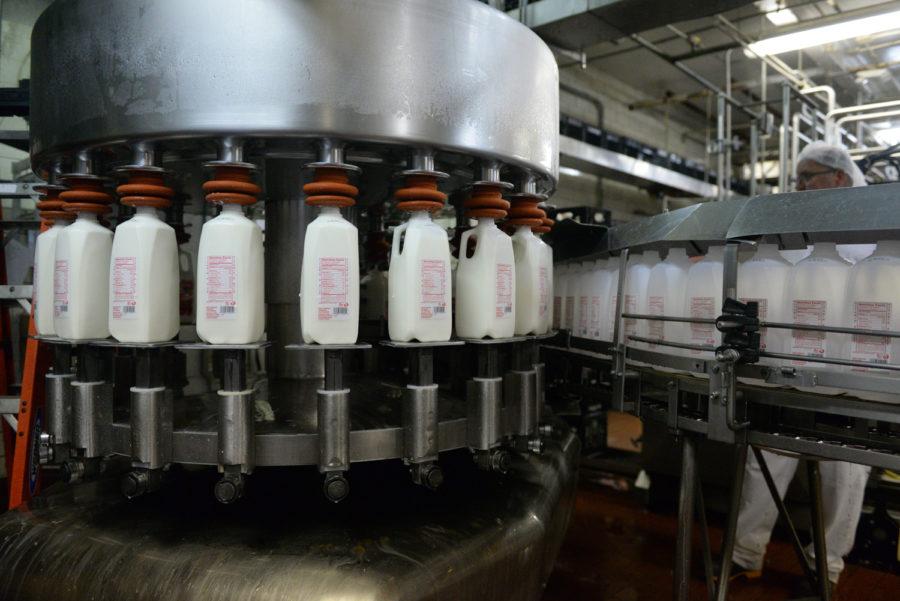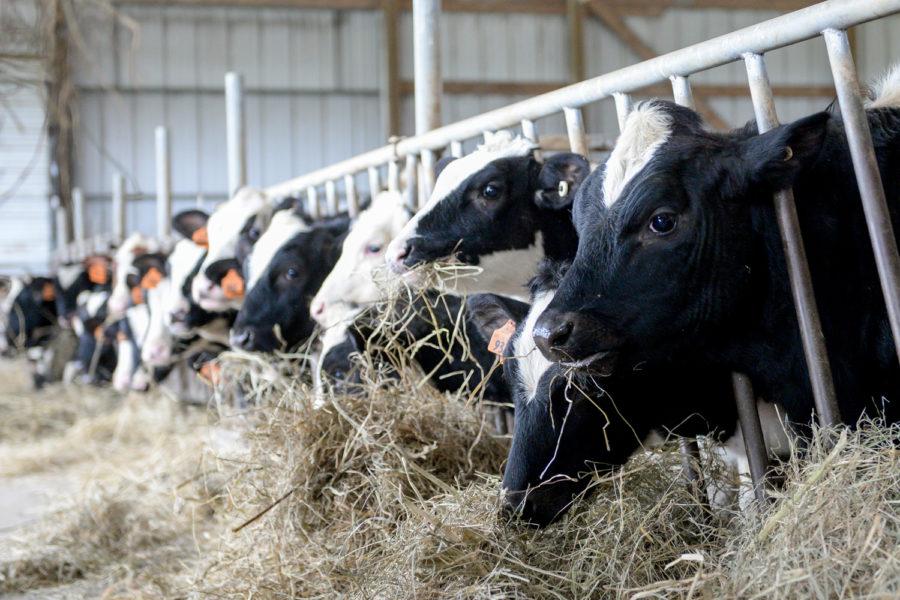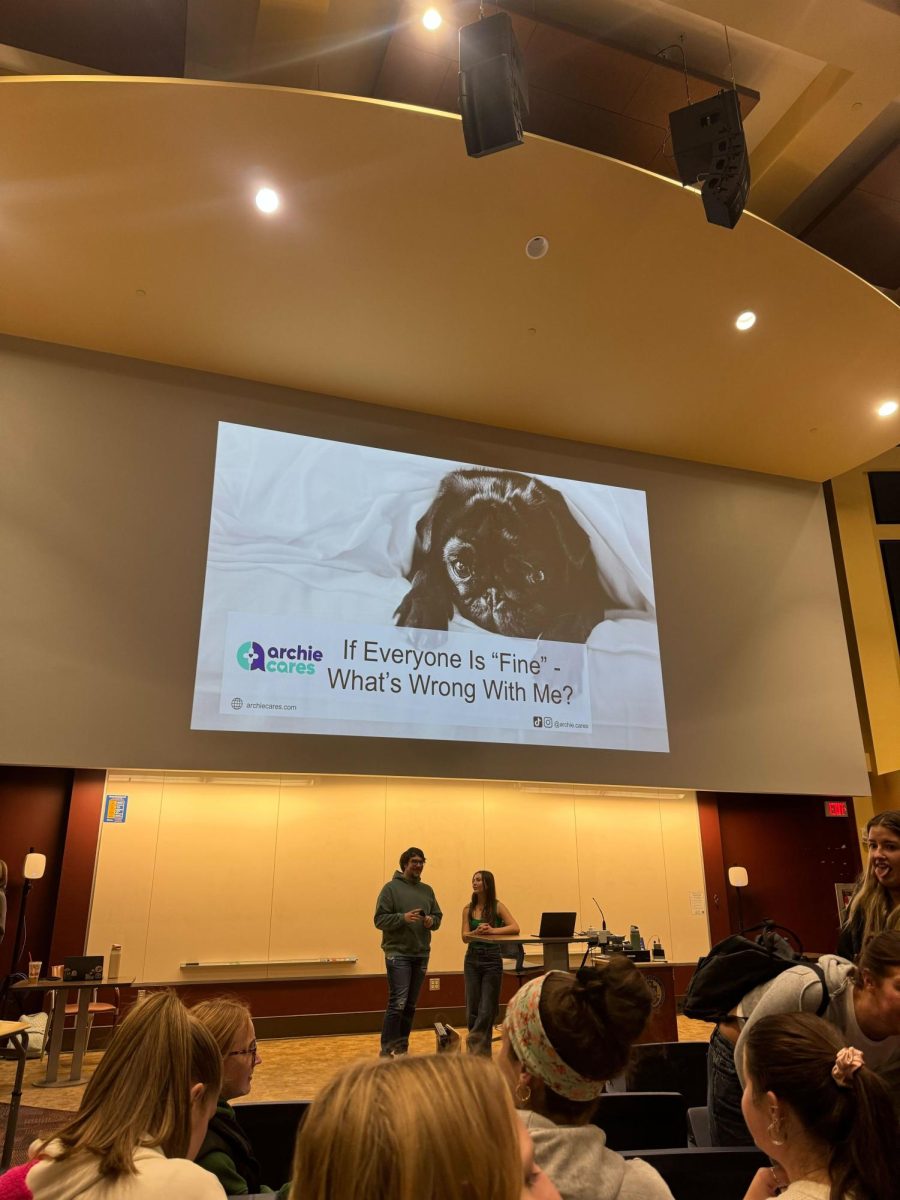Udderly local: A snapshot of Schneider’s Dairy
Wenhao Wu | Senior Staff Photographer
Bergbigler Farm in Butler is home to about 100 dairy cows.
November 8, 2018
Nestled among residential homes and community parks in the Pittsburgh suburb of Whitehall, about 10 miles south of Oakland, is the headquarters of a company most Steel City natives became familiar with in their elementary school cafeterias — Schneider’s Dairy, a family-operated business that has been in operation since 1935.
Edward and Catherine Schneider founded the dairy as a small, local producer, but today their products can be found in Pennsylvania, New York, West Virginia and Ohio. Their product line has expanded to include juices, iced teas and dips — and Schneider’s milk has also found a home on Pitt’s campus in the milk dispensers in Market Central and The Perch.
As part of the Real Food Challenge, a national initiative focused on bringing sustainable, humane, fair and locally sourced food to college campuses, a group of 10 Pitt students and dining employees visited Schneider’s Dairy and Bergbigler Farm on Oct. 26, led by Pitt dining sustainability coordinator Nick Goodfellow.
“A big part of [the Real Food Challenge] was working with chefs, working with students, working with our distributors and vendors … like Schneider’s to understand a lot more about their sourcing and their business practices to determine whether the product counted as real,” he said.
In order to have enough product to supply such a large area, Schneider’s Dairy works with about 60 different Pennsylvania farmers. As all of their raw milk comes from local farms, Schneider’s Dairy is a Pennsylvania Preferred company, certified by the state’s Department of Agriculture.
One of Schneider’s local partners is the Bergbigler family, which operates a farm in Butler County, home to about 100 cows. Mary Beth Guynup, the fourth-generation owner of Bergbigler farms, runs an almost entirely female farm. Her father, Leroy Bergbigler, is the only male that works — or lives, in the case of the cows — on the farm.
“We don’t keep boys. Boys have no real value to us,” Guynup said. “We artificially breed all of our cows so we don’t even need a bull.”
The dairy industry can be backbreaking work. No matter what happens in their personal lives, at least one of the Bergbigler family must be at their farm to look after the herd and make sure they are milked at the scheduled times.
“We rarely leave. One of us is almost always here,” explained Guynup. “If something comes up, if someone gets married, one us stays behind.”
All Schneider’s Dairy farms are required to sign an affidavit stating their cows are raised without rBST hormones. Although there are no reports of rBST causing adverse health effects from consuming milk from cows treated with rBST, Schneider family member and marketing manager Justin Schneider said the farm bans rBST.
“There hasn’t been any proven significant difference between those that use the rBST and those that don’t,” Schneider, who has worked for the company for the last 15 years, said. “We’re just not willing to take that chance at this point.”
In order to limit the dangers of dairy products, Bergbigler Farm processes raw milk through a series of metal pipes that cool the milk to 45 degrees down from the 102-degree body temperature of the cow. After cooling, the milk is added to a large stainless steel container. At no point during this process does the milk get handled by any people.
“Within one minute of that milk leaving that cow,” Leroy explained, “it’s out here and it’s less than 45 degrees.”
The automation and rapid cooling extend the shelf life of the milk and help keep it free of contaminants. When milk is collected by a hauling contractor and taken to Schneider’s Dairy, the raw milk from multiple farms is mixed together in a large truck.
“We don’t touch it until everything passes,” plant manager Joe Noro said. “Once it’s passed … we’ll put it in one of the three tanks we have.”
After it is determined to be free of contaminants, the milk is stored in large tanks. From these tanks it is homogenized, pasteurized, skimmed and bottled as it passes through an automatic assembly line. The assembly lines at Schneider’s snake back and forth around the processing plant with skimmers and pasteurizers placed at convenient locations.

Schneider’s Dairy provides milk and cream products that are sold on campus.
While the machines are placed at sensible locations along the assembly line, in order to get anywhere within the plant workers are forced to double back on themselves repeatedly as they navigate the maze of pipes and production lines. Although the business has expanded many times, Schneider’s continues to operate out of a building that was constructed in 1939, adapting to the available space.
The full bottles are then placed in crates, which are transported in stacks into an enormous walk-in fridge where workers position the stacks for easy removal so they can be distributed around the area — eventually ending up in milk cartons and dining halls across the region. Schneider’s boasts that its local business model gets milk from farms to stores in less than 24 hours.
Connie Oshop, the Schneider’s farm inspector who has worked with the company and its partners for 20 years, agrees with the family that it’s best to use local dairy products.
“The Schneiders have always believed it’s more about the family and the families making a living and providing a good product,” Oshop said.



